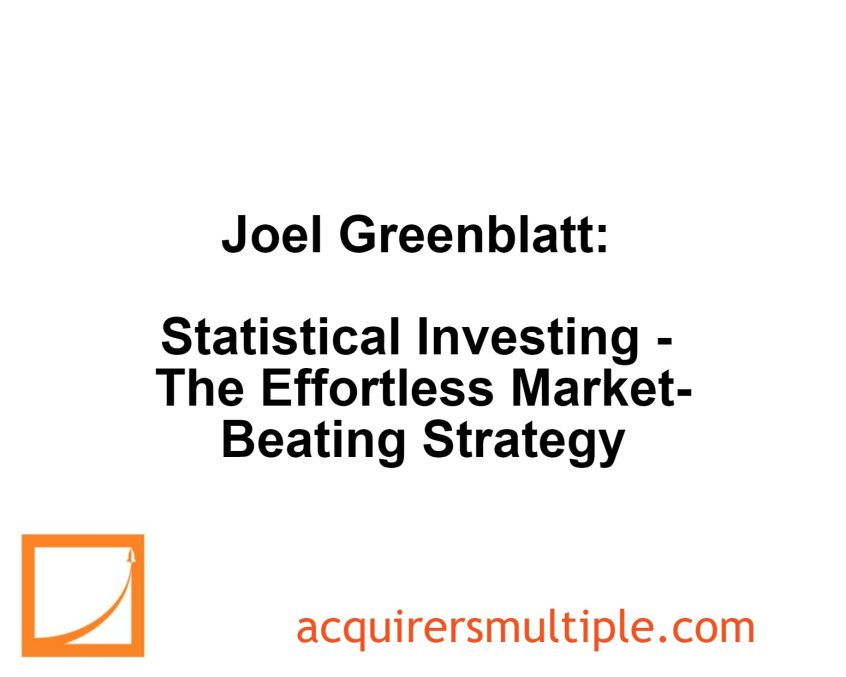In his book – You Can Be A Stock Market Genius, Joel Greenblatt discusses an investment approach where you can diversify your portfolio with stocks that trade at low prices relative to their book value and cash flow, while occasionally incorporating special-situation investments.
He suggests that for investors who lack the time or desire to pick individual stocks, assembling a group of 15-20 such stocks could still outperform the market.
While Greenblatt personally prefers more in-depth research and understanding of businesses, he acknowledges that this statistical investing strategy can be effective for do-it-yourself investors seeking market-beating returns with limited time.
Here’s an excerpt from the book:
Here’s another way you can play: You don’t have to make up your entire portfolio out of these special corporate situations.
Maybe you have another strategy that works for you. Let’s say you’re a Ben Graham fan. You don’t want to put in the time or effort to pick individual stocks, but you still have a hankering to beat the market. Putting together a group of fifteen or twenty stocks that trade at low prices relative to their book value and also at low price/cash-flow ratios will probably do the job.
If you pepper this portfolio with the occasional special-situation investment (accounting for maybe 20 or 30 percent of the total pie), you can still get very satisfying results.
While I’m not a huge fan of statistical investing (because I always figure I’ll do better by researching and understanding the businesses I’m buying), for do-it-yourself investors with limited time, this might be an acceptable strategy.
You can find a copy of the book here:
You Can Be a Stock Market Genius – Joel Greenblatt
For all the latest news and podcasts, join our free newsletter here.
Don’t forget to check out our FREE Large Cap 1000 – Stock Screener, here at The Acquirer’s Multiple:




One Comment on “Joel Greenblatt: Statistical Investing – The Effortless Market-Beating Strategy”
I do have Greenblatt’s book on the Magic Formula. I was surprised to see him make any reference to the Price to Book ratio. Other than for banks, where the assets and liabilities are cash, Price to Book is totally meaningless and has been since Keynes conceived deficit budgeting that caused worldwide inflation.